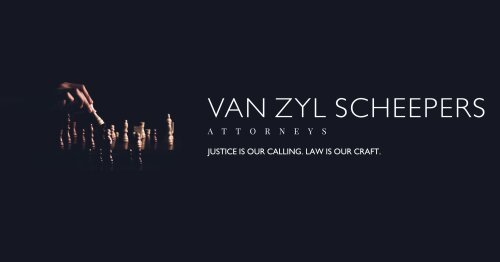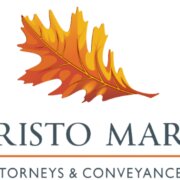Best Government Relations & Lobbying Lawyers in Stellenbosch
Share your needs with us, get contacted by law firms.
Free. Takes 2 min.
List of the best lawyers in Stellenbosch, South Africa
South Africa Government Relations & Lobbying Legal Articles
Browse our 1 legal article about Government Relations & Lobbying in South Africa written by expert lawyers.
- B-BBEE Compliance Guide for Small Businesses in South Africa
- B-BBEE compliance is measured on a scale of Level 1 to Level 8, where Level 1 provides the highest competitive advantage for securing government tenders and private sector contracts. Small businesses with an annual turnover under R10 million are classified as Exempted Micro Enterprises (EMEs) and automatically qualify for Level... Read more →
About Government Relations & Lobbying Law in Stellenbosch, South Africa
Government Relations and Lobbying in Stellenbosch, South Africa, have become increasingly significant as businesses and interest groups seek to influence policy decisions. The practice involves professionals who understand the intricacies of political, legislative, and regulatory systems. In Stellenbosch, known for its vibrant wine industry and educational institutions, stakeholders are often engaged in lobbying to influence decisions that affect economic and social interests. What distinguishes government relations and lobbying in this context is the blend of local governance with national legislation, making understanding both municipal and broader South African laws crucial for effective advocacy.
Why You May Need a Lawyer
There are several situations where legal expertise in Government Relations & Lobbying may be necessary:
1. **Legislative Advocacy:** When businesses or NGOs aim to influence proposed legislation affecting their operations or broader community interests.
2. **Regulation Compliance:** Navigating compliance with existing regulations to ensure business practices are lawful, especially in heavily regulated sectors such as agriculture or education.
3. **Public Policy Influence:** Developing strategies to advocate for policy changes that align with an organization’s goals.
4. **Licensing and Permits:** Assistance in obtaining the necessary governmental permissions efficiently and lawfully.
5. **Crisis Management:** Engaging in effective communication and negotiation with government bodies during a crisis to mitigate harm.
Local Laws Overview
Stellenbosch operates within the Western Cape Province legal framework, which is part of South Africa's broader national legal system. Legal practitioners in the area must consider:
1. **The Regulation of Interception of Communications and Provision of Communication-Related Information Act (RICA):** Ensures privacy compliance and proper communication channels during lobbying efforts.
2. **The Promotion of Access to Information Act (PAIA):** Facilitates access to information held by the government that is necessary for advocacy and lobbying work.
3. **Municipal Systems Act:** Governs the manner in which local municipalities function, crucial for understanding local government interactions.
4. **Anti-Corruption Frameworks:** Adherence to anti-corruption laws such as the Prevention and Combating of Corrupt Activities Act is critical in maintaining ethical lobbying practices.
Frequently Asked Questions
What is lobbying?
Lobbying is the act of attempting to influence decisions made by government officials, usually legislators or members of regulatory agencies.
Is lobbying legal in South Africa?
Yes, lobbying is legal in South Africa, but it must adhere to specific laws and ethical standards to ensure transparency and fairness.
Who can lobby?
Anyone can engage in lobbying, from private individuals to large organizations and NGOs, as long as they comply with legal and ethical guidelines.
How can a lawyer assist in government relations?
A lawyer can provide expertise in analyzing legislative proposals, ensuring compliance with laws, drafting policy documents, representing interests before governmental bodies, and advising on strategic communication efforts.
Are there any registration requirements for lobbying?
South Africa does not have a comprehensive national register for lobbyists, but specific sectors and local jurisdictions may have unique registration requirements or mandates for reporting activities.
What are the risks of lobbying without legal assistance?
Engaging in lobbying without legal assistance can lead to non-compliance with laws, potential ethical breaches, and ineffective advocacy efforts, which can harm the entity's reputation and interests.
Can lobbyists donate to political campaigns?
Lobbyists can donate to political campaigns in South Africa, but there are strict rules about transparency and limits that must be adhered to, ensuring no conflicts of interest.
What is the difference between lobbying and advocacy?
While lobbying specifically refers to efforts to influence legislation or regulation through direct contact with officials, advocacy is broader and includes public campaigns and grassroots efforts to shape public opinion and policy.
How do I start a career in government relations and lobbying?
A career in government relations and lobbying typically requires an understanding of legal frameworks, political science, and strong communication skills. Many professionals pursue degrees in law, political science, or public administration.
What should I look for in a government relations lawyer?
Look for a lawyer with experience in political law, a strong understanding of both local and national law, excellent negotiation skills, and a proven track record of successful lobbying efforts.
Additional Resources
For those seeking more information or assistance, here are some resources:
1. **Stellenbosch Municipality:** Provides insights into municipal bylaws and regulations.
2. **South African Chamber of Commerce and Industry (SACCI):** Offers guidance and support for engaging with governmental entities.
3. **Legal Resources Centre (LRC):** Provides legal assistance and resources for public interest law.
4. **Department of Trade, Industry and Competition (DTIC):** Access to information on regulations affecting commerce and industry.
Next Steps
If you need legal assistance in Government Relations & Lobbying in Stellenbosch, start by consulting with a lawyer who specializes in this field. Prepare to discuss your specific situation, including any recent interactions with governmental bodies and your objectives. Consider attending a consultation to evaluate the lawyer’s expertise and approach to your needs. Additionally, stay informed of any changes in local and national laws that may impact your activities.
Lawzana helps you find the best lawyers and law firms in Stellenbosch through a curated and pre-screened list of qualified legal professionals. Our platform offers rankings and detailed profiles of attorneys and law firms, allowing you to compare based on practice areas, including Government Relations & Lobbying, experience, and client feedback.
Each profile includes a description of the firm's areas of practice, client reviews, team members and partners, year of establishment, spoken languages, office locations, contact information, social media presence, and any published articles or resources. Most firms on our platform speak English and are experienced in both local and international legal matters.
Get a quote from top-rated law firms in Stellenbosch, South Africa — quickly, securely, and without unnecessary hassle.
Disclaimer:
The information provided on this page is for general informational purposes only and does not constitute legal advice. While we strive to ensure the accuracy and relevance of the content, legal information may change over time, and interpretations of the law can vary. You should always consult with a qualified legal professional for advice specific to your situation.
We disclaim all liability for actions taken or not taken based on the content of this page. If you believe any information is incorrect or outdated, please contact us, and we will review and update it where appropriate.












